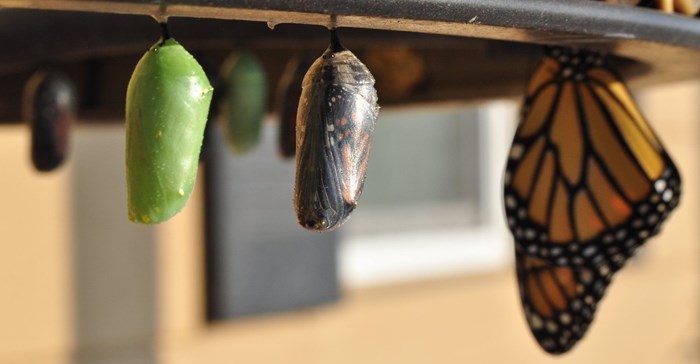
Top stories






More news


Marketing & Media
Ads are coming to AI. Does that really have to be such a bad thing?














The answer is simple. Strive to own a small part of something extraordinary rather than own a large part of something ordinary. We can no longer afford to sit on our capital and skills – by investing in people and restoring dignity, we will set in motion the tiny interventions that exponentially trigger fundamental change.
This is not about adopting a charity mindset, nor is it about becoming a socialist country. Responsible capitalism has all the tools to fundamentally change society. By investing in staff and immediate communities, cumulatively the impact can be profound.
For this change to stand a chance, businesses need to invest in opportunity and potential. Right now, near Umtata is a proof-of-concept that could drive de-urbanisation and provide an alternative for employment creation. A village of people, who are being taught farming and related business skills, use their mobile phones to trade among themselves using their very own, unique cryptocurrency.
Imagine the South African-born doctor Ariel Lashanksy and Roi Abraham, who developed the concept with the village, were able to convince a big corporate to roll out 50 of these micro-community projects.
Suddenly there would be an entirely new and digitally-relevant model for de-urbanisation and employment creation: two massive and burning issues in SA. In a similar but unrelated story, a gifted, young, black engineer developed a smart app that bypasses the need for cellular reception.
Because of a lack of funding, he was unable to take up an invite to bring his concept directly to Harvard University and potentially rub shoulders with very influential investors.
The unwillingness to invest in a concept before it has become a success story is not unique to South Africa. There were no doubt hundreds who passed up the opportunity to put money into an app that would disrupt hotels or another that would shake up the New York yellow cab industry.
However, we know that big businesses in South Africa are sitting on a war chest of billions of rands, set aside for innovation, investments and startups, but they are playing a waiting game. They sat on their war chests during Jacob Zuma’s presidency and are doing the same now.
If you truly want a better country:
— Mike Abel (@abelmike) July 27, 2019
1. Stop thinking along political lines
2. Stop thinking along racial lines
3. Stop thinking along religious lines
1. Start thinking as a parent
2. Start thinking as a business person
3. Start thinking what makes countries work#OnePeople ����
The alternative is predatory capitalism – waiting for someone else to take the risk and then following with your money.
Responsible capitalism is where we ask: how do we use our brainpower and our talents to uplift and grow the lives of many others? In so doing, we grow our businesses and become successful in our own right, but we also grow more consumers and provide opportunity for more businesses. Essentially, we make the pie bigger.
Will people willingly share the inevitably bigger pie? Transformation should not be a box-ticking exercise. The point should not be to give away some equity to increase your business contacts. That model is unsustainable.
Ownership is not the only way to share the pie. Access to networks, something the establishment often takes for granted, is crucial to unlocking broad-based prosperity.
I was invited to a prestigious year-end event. In the room was the who’s who of South African business: a combined net worth amounting to many, many billions. The only black people in the room were the MC and the government dignitary invited to deliver a keynote address.
In his address, the government member challenged the audience, 90% traditional white male customers and 10% women, to “bring a black friend” to the next event.
As simplistic as that may sound, it makes a crucial observation. Because unless black South Africans are provided with access to the kind of networks – that established, white businesses take for granted – there will be more young black engineers with apps that don’t get noticed, more proofs-of-concept in the Transkei awaiting mass rollout and more young black executives that don’t reach the pinnacle of business in SA.
Again, it is not about charity. Even if a young black executive or creative provided with exposure at these events did not walk away with a cheque, the access to institutional knowledge and mentorship is priceless. A single conversation could have a butterfly effect.
We have all heard the story of JK Rowling and Colonel Sanders’s numerous rejections, but it was the “yes” that changed their lives and, quite frankly, made their legacies part of so many of our lives. We can sow the seeds of “yes” within our businesses and micro-communities.
